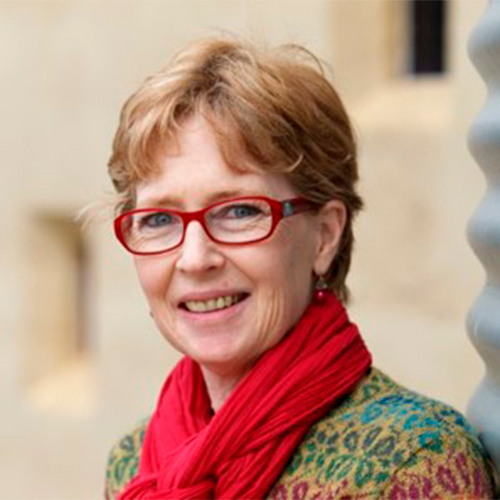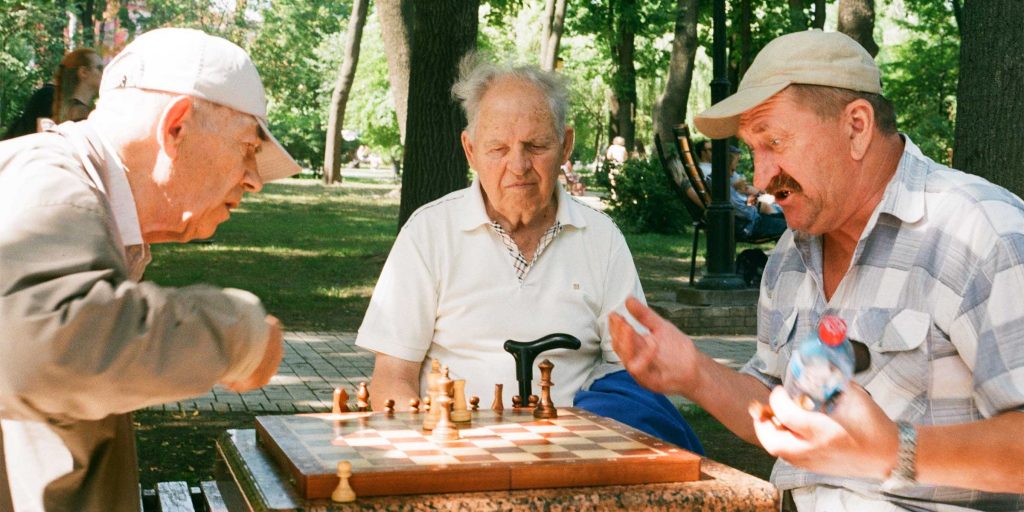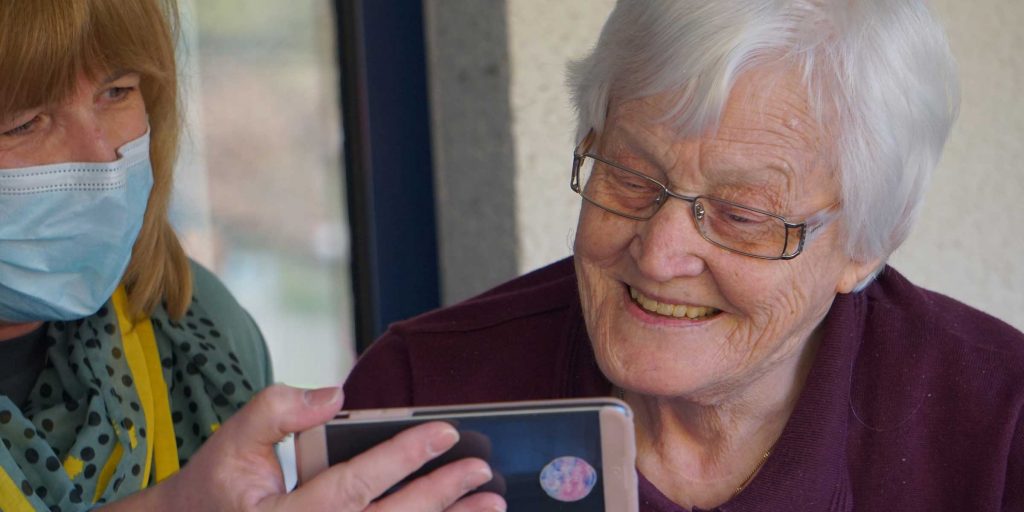Making a difference in the lives of older adults is a supremely rewarding career. You know that. It’s why you already work in healthy ageing and gerontology – or are looking to move into the sector. And the best way to upskill your health career and take your professional life to the next level? Gaining a postgraduate qualification. A postgrad degree is going to mean your career options deepen and widen. With advanced knowledge, you’ll be ready to move into a new area, specialise to make a difference where your passion lies, or take on leadership and management roles. But you may be asking: what can I do with a master’s in gerontology?

Never fear, we’ve got the lowdown for you, and some insights from expert Charles Sturt healthy ageing academic Robin Harvey.
Advanced knowledge means advanced career options
A master’s in gerontology is where you take your healthcare knowledge to the next level. It builds on your bachelor’s – whether that’s also in gerontological studies or another area of health services, such nursing, physiotherapy or social work. Yes, that’s right, you can undertake a master’s in this field if you have qualifications and/or experience in another health discipline.
So, what sort of things do you learn in a master’s in gerontology? Here are just a few of the topics you could gain skills in.
- Ageing and associated mental and physical health issues
- Case management
- Clinical leadership in your area of expertise
- Advocacy and policy around ageing
- Legal and ethical concerns in service delivery
- Understanding how health services coordinate to help older adults
And these advanced skills and knowledge open the door to a wide range of options when it comes to your career.
Such as? Glad you asked. Here is just a small selection of avenues you could explore with your master’s in gerontology.

Program development
Socialisation – and the minimisation of loneliness – is a key factor in improving the mental health of elderly people, so developing programs that enable older adults to participate in social activities and contribute to their communities can have a major impact of quality of life. You could work in program development in a single aged care facility, across a community or even at a state level, where your skills could be turned used to raise awareness and health promotion in communities.
For Robin Harvey, program development really gets to the heart of community support for older people.
“Gerontology studies enable professionals to work within our existing health and social support systems as well as gain the knowledge and skills to transform systems to improve the lives of older adults. There are important aspects of many health and aged care roles. Challenging ageist assumptions at community, organisational and health system level, policy and program development, health promotion activities and working towards age-friendly environments that support the active contributions of older adults.”
Research
A master’s degree is the ideal first step into research. Indeed, you can choose to undertake a research project tackling a real-world problem as part of your degree. You can then put your skills to use and research the ageing process and the various diseases associated with aging. You could help find cures for diseases responsible for hastening the biological ageing process such as Alzheimer’s disease, cancer, cardiovascular disease, arthritis, and osteoporosis.
Research can also be used to help understand the different experiences of ageing and later life. You could explore the social aspects of ageing and caregiving, analyse the impact of policy change and service provision on older adults, or help address issues that lead to disadvantage and inequalities in later life. Go on to higher degrees by research – such as a PhD – and you could move into academia, combining research with teaching the next generation(s) of gerontological specialists.
Organisational development
Another diverse career path is advising organisations about elderly people. You could work with industry to increase workforce participation for older adults or advise businesses on product development specifically for older consumers, as Robin Harvey explains.
“Older adults are an increasing proportion of the population and almost every business and profession will be finding that older people make up a greater share of their clients/customers/target market. An understanding of the challenges and opportunities of an ageing population and the diversity of strengths, interests and needs of older people will be an asset to organisations wishing to develop.”
Advocacy
Be a voice for change on behalf of elderly people. Use the in-depth knowledge and skills from you master’s to critically analyse information and present findings. Advocate with or on behalf of older people before legislative bodies. Inform inclusive practices in institutional settings. Or play a role in developing government initiatives and policy that impact upon elderly people.

Direct care
Of course, you may also want to work directly with older people. That could be providing care in hospital, nursing homes or a person’s own home. You’ll assess a person’s psychological and clinical needs. Then you’ll devise personalised care programs or play a role in coordinating care for individuals across different health services. With a master’s, you also open up the possibility of managing health or aged care services that focus on residential or community support.
Robin explains that direct care-giving professionals have a lot of career opportunities.
“Nursing, aged care, allied health and human services practitioners apply specialist knowledge of ageing to their work with older adults. Our health and care services require the clinical and organisational leadership that gerontology trained professionals are able to offer. This ensures the ongoing development of high quality and effective care and services to older people and the community.”

Where do you want to take your gerontology career?
Obtaining a master’s in gerontology gives you the scope to help build a health and aged care system that will directly benefit the older people in your community. So, where next? We’ve got the postgraduate degree for you.


You must be logged in to post a comment.